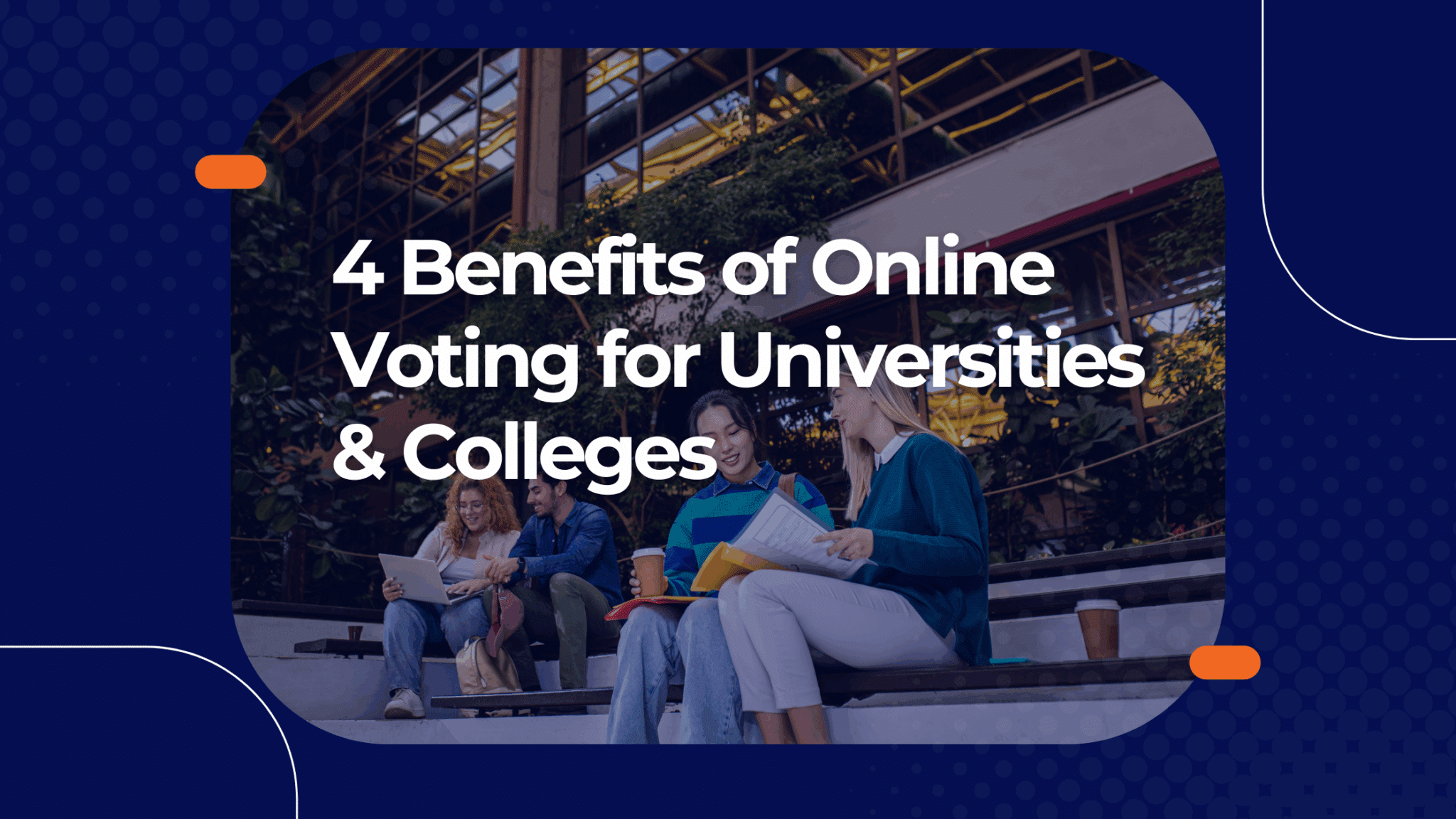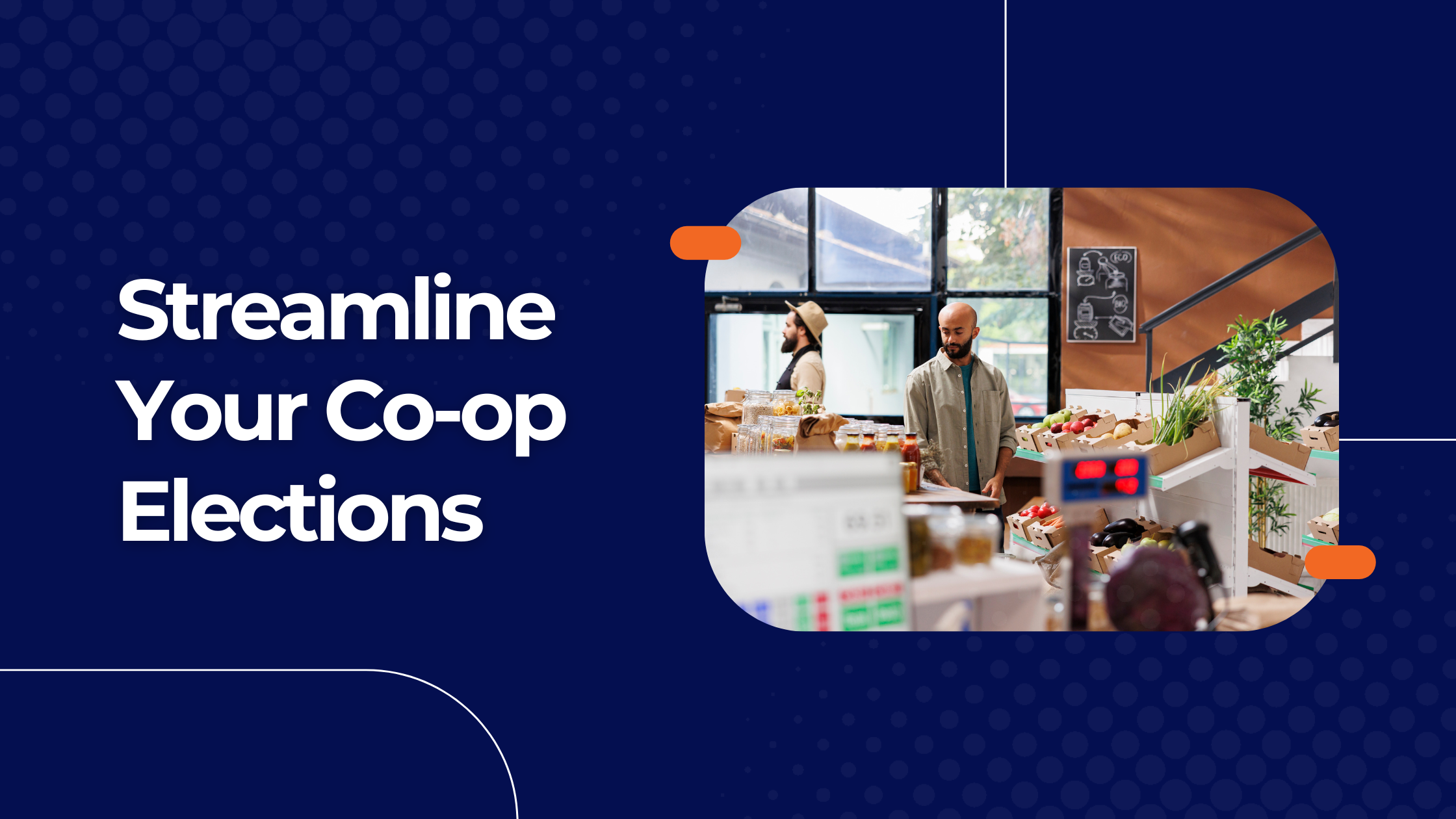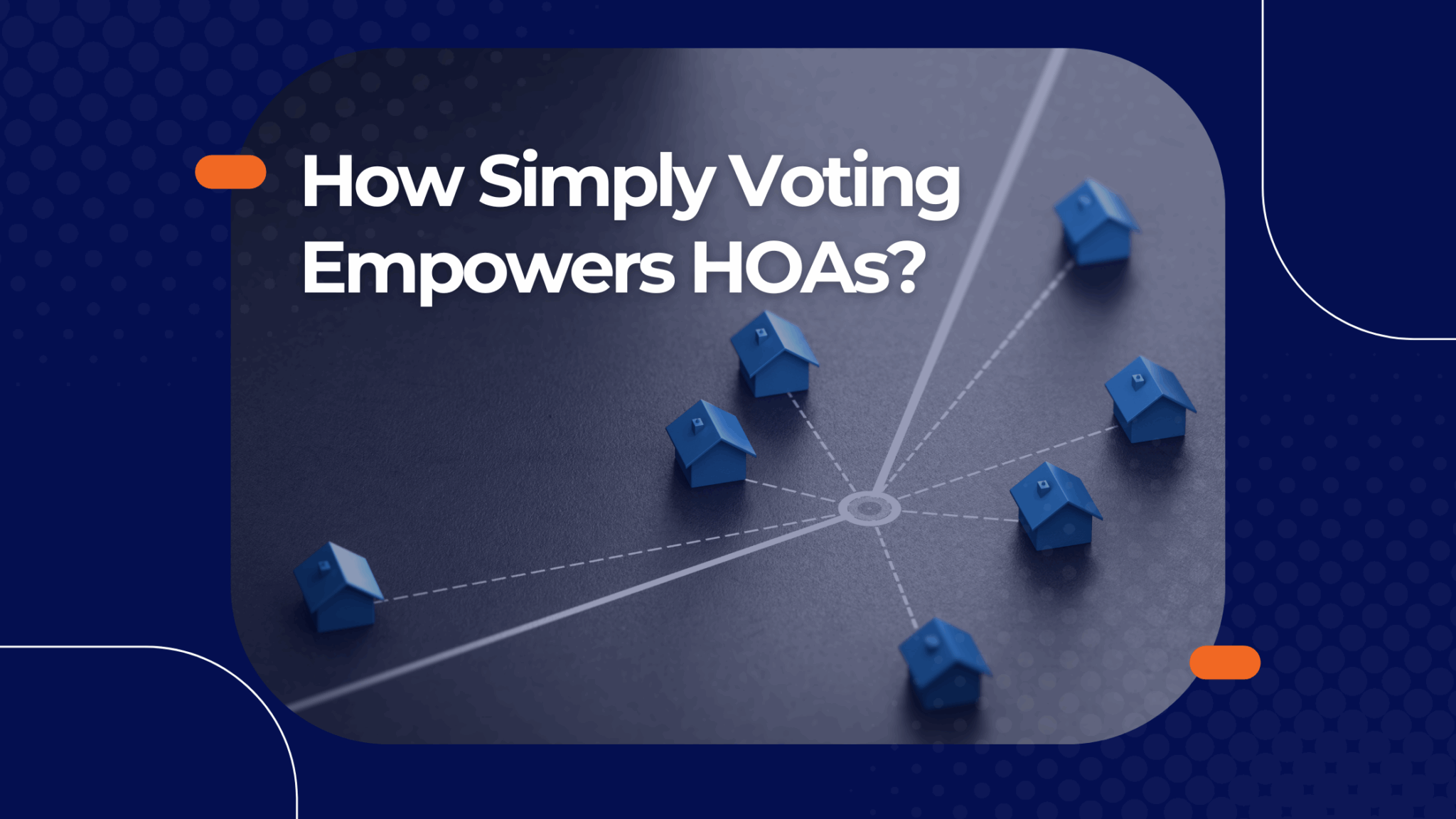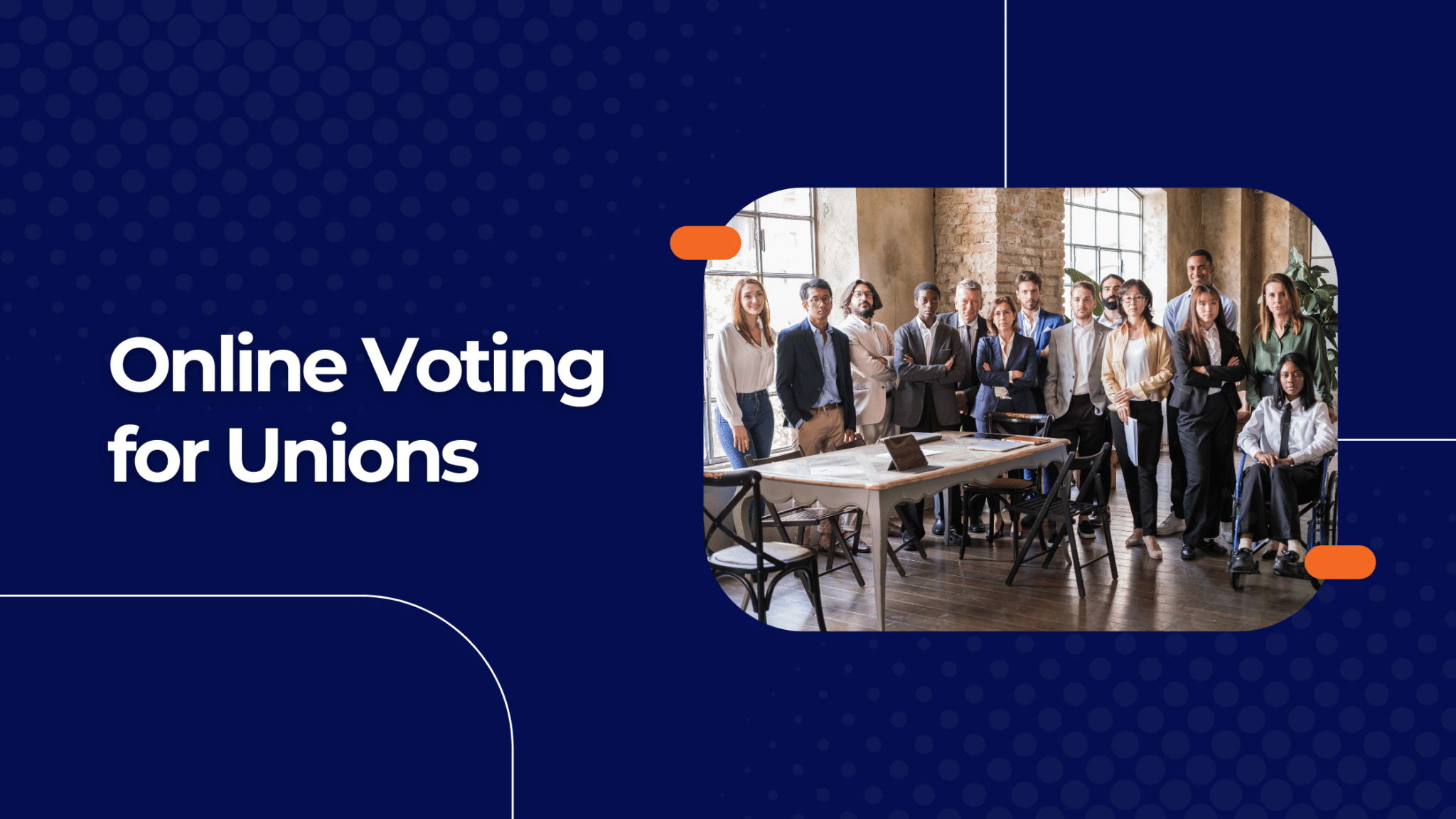In the last decade, universities and colleges have progressively adopted online voting for their elections. Whether it is for a student union election, faculty councils or an election for other campus groups, online voting tools offer a more flexible secured and transparent way to engage the university community.
4 Benefits of online voting for universities:
- Increased participation
Traditional voting methods often face low turnout due to the difficulty for voters to be present in person on campus, during limited voting hours. With online voting, students can cast their ballot easily from anywhere and organizers to keep their election open longer allowing their electors to vote at any time on or off campus, during the day or late at night. This increased accessibility encourages more voters to engage in the voting process.
2. Reduced errors
Online voting also helps reduce human errors in the election process like the management of election data and vote tabulation. Thanks to it secure balloting design, online voting can prevent mistakes like, both on the voter's end, preventing accidental ballot spoiling, to preventing counting errors or keeping track of ballots by election administrators.
3. Security and transparency
Online voting offers strong security features, ensuring that every vote is protected and counted accurately. Each action made throughout the election process is tracked and saved in an auditable log ensuring transparency throughout the process along with trusted, legitimate results helping build trust among all important stakeholders in the election process, from voters, to election organizers, to candidates. Maintaining anonymity, while also preventing voters from attempting to vote multiple times, helps ensure votes are recorded accurately and securely ensuring the integrity of the election.
4. Flexible process
The flexibility of online voting allows ballots to be customized to the specific needs of an election. Organizers can adjust the number of positions on the ballot, the number of candidates for each position, and how many candidates’ voters can vote for. They can decide or allow abstention or not, allow write-ins or not. Elections can also be tailored to specific groups, by restricting participation to some positions up to election to only a specific group such as a specific major or a group of students like international students allowing only voters directly affected by a decision to be able to cast a vote.
Types of elections in Universities and Colleges:
- Board and governance
University boards usually consist of faculty staff and students. They vote on decisions like policies, budgets and strategies to promote the programs and faculties. Universities also hold elections for governance-related positions such as faculty councils, deans of academic committees.
- Student unions
Student unions are essential to university life, representing the interests of students. Election for union officers like presidents, vice-president, treasurer etc. are essential to ensure a great representation of the student body.
We’ve been helping universities run elections for over 20 years, check out this example:

Montgomery College is a Maryland community college with three main campuses counting 60,000 students, 1,500 faculty members and 1,300 other staff. They started using Simply Voting in 2012.
They choose online voting because they needed flexible and robust elections to elect governance positions and wanted to minimize staff involvement in the election management. They opted for fully managed elections with single sign-on integration for voter login and organize their election in 2 rounds:
- The nomination round: Voters nominate any student, administrator, staff, or faculty
- The election round: Voters vote for representatives based on constituency
They have reported a streamlined process, reduced workload, and increased voter participation over the years.
Here’s what Montgomery College had to say about their experience with our platform:
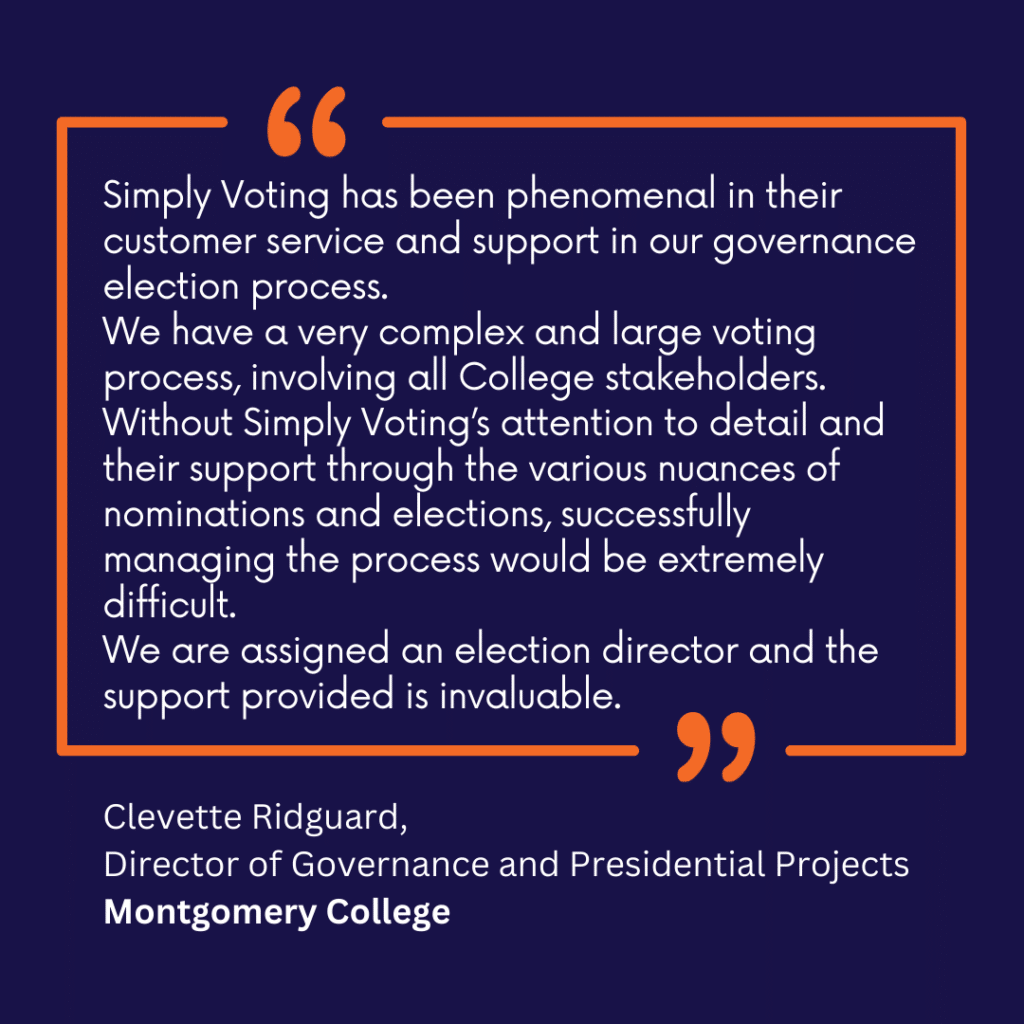
Rethinking Your Voting Process? Let’s Make It Simple, Secure, and Trusted.
With our extensive experience and a secure, flexible platform trusted by leading institutions, universities can move beyond the limitations of in-house tools or opaque systems. By partnering with a neutral third party, they reduce internal burden, build trust, and drive higher engagement from students and faculty ensuring decisions reflect the true voice of their community.
